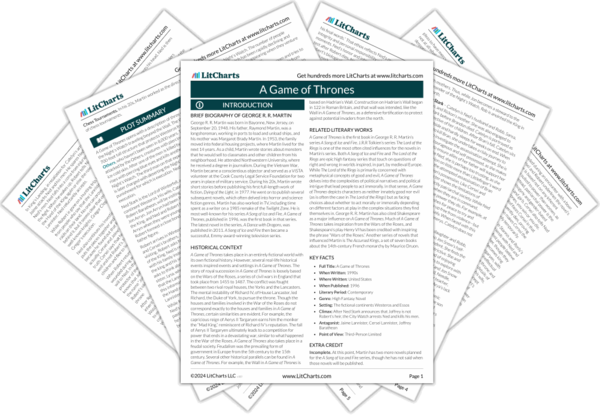Previous
Chapter 52: Jon
|
Previous
Chapter 52: Jon
|
A Game of Thrones: Chapter 53: Bran Summary & Analysis |
Next
Chapter 54: Daenerys
|


Upgrade to unlock the analysis and theme tracking for all of A Game of ThronesA Game of Thrones!
Get LitCharts A+